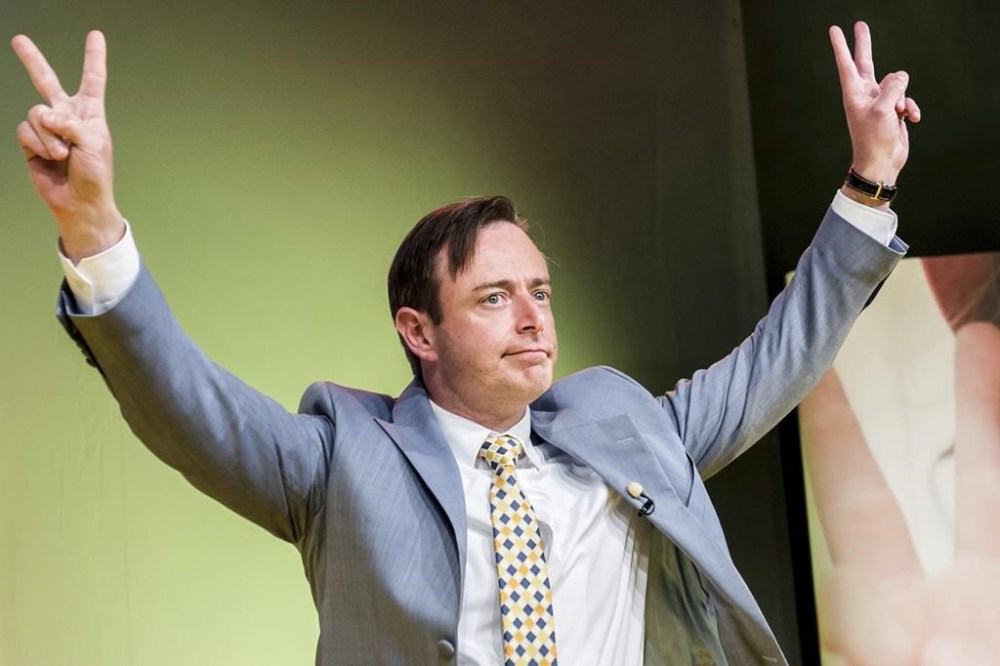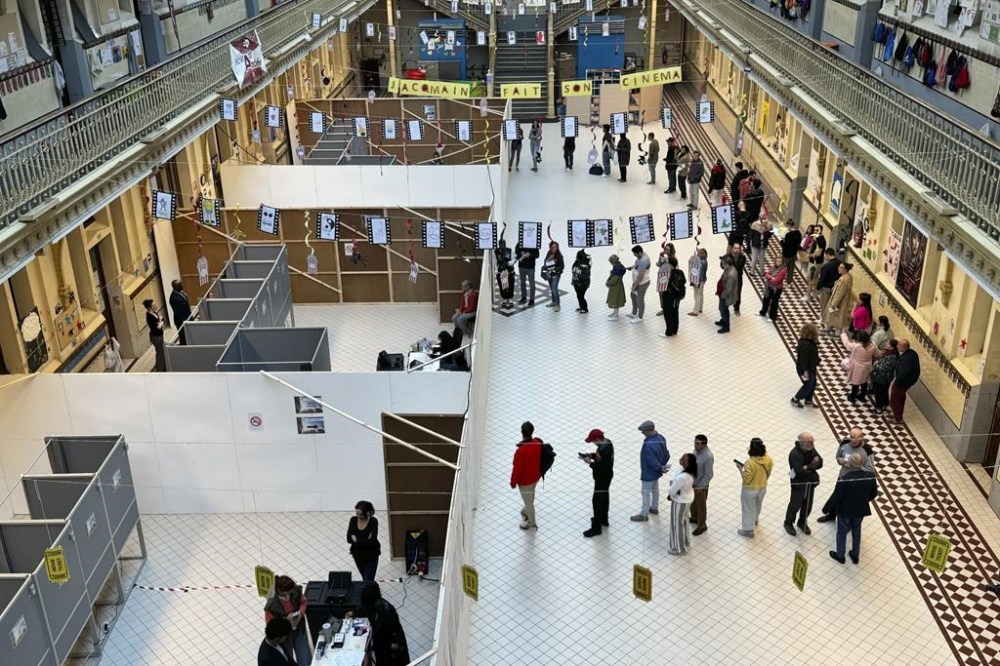Complex coalition talks loom in Belgium after Flemish nationalist parties win federal election
Advertisement
Read this article for free:
or
Already have an account? Log in here »
To continue reading, please subscribe:
Monthly Digital Subscription
$0 for the first 4 weeks*
- Enjoy unlimited reading on winnipegfreepress.com
- Read the E-Edition, our digital replica newspaper
- Access News Break, our award-winning app
- Play interactive puzzles
*No charge for 4 weeks then price increases to the regular rate of $19.00 plus GST every four weeks. Offer available to new and qualified returning subscribers only. Cancel any time.
Monthly Digital Subscription
$4.75/week*
- Enjoy unlimited reading on winnipegfreepress.com
- Read the E-Edition, our digital replica newspaper
- Access News Break, our award-winning app
- Play interactive puzzles
*Billed as $19 plus GST every four weeks. Cancel any time.
To continue reading, please subscribe:
Add Free Press access to your Brandon Sun subscription for only an additional
$1 for the first 4 weeks*
*Your next subscription payment will increase by $1.00 and you will be charged $16.99 plus GST for four weeks. After four weeks, your payment will increase to $23.99 plus GST every four weeks.
Read unlimited articles for free today:
or
Already have an account? Log in here »
Hey there, time traveller!
This article was published 09/06/2024 (509 days ago), so information in it may no longer be current.
BRUSSELS (AP) — Flemish nationalist parties dominated general elections in Belgium on Sunday as Prime minister Alexander De Croo’s liberal party took a hit, with difficult coalition talks to form a new government now looming.
Despite polls predicting that the far-right, anti-immigration Vlaams Belang party would become the main political force in the country with 11.5 million inhabitants, the right-wing nationalist New Flemish Alliance (N-VA) retained its first spot, with an expected 22% of the votes, according to provisional results provided by the Interior ministry.
The Vlaams Belang came in second position, with a share of 17.5%, ahead of the Socialist Voruit party, which garnered about 10.5% of the votes.

De Croo’s party managed less than 7% of the votes, lagging well behind the far-left.
“This is a very difficult evening for us, we have lost,” De Croo said. “From tomorrow I will be the outgoing prime minister. But we liberals are strong, and we will be back.”
Belgian voters returned to the national polls on Sunday, in conjunction with the European Union vote and elections for regional chambers.
Sunday’s results will result in complex negotiations in a country divided by language and deep regional identities. Belgium is split along linguistic lines, with francophone Wallonia in the south and Dutch-speaking Flanders in the north, and governments are invariably formed by coalitions made of parties from both regions.
Vlaams Belang has so far been blocked from entering governments as mainstream parties vowed to exclude it from power under a “cordon sanitaire” doctrine referring to the protective barrier put in place to stop the spread of infectious diseases.
De Croo is in charge of a seven-party coalition government which was formed after almost 18 months of talks following the previous elections five years ago. The wait was even longer after the 2010 vote when the country needed 541 days to form a government, still a world record.
As more than eight million Belgians took to the polls on a hot and sunny day, voters sometimes had to queue for hours before they could vote in Brussels, the country’s capital city.

With some people struggling to cope with the hot weather, the Red Cross reportedly helped out and handed out bottles of water.
There were also reports of irregularities, as some underage voters who were only allowed to cast their ballot in the European elections also managed to vote in regional and federal elections they were not entitled to take part in. Teenagers aged 16 and 17 were allowed to vote for the first time in the European elections, but Belgian citizens must be at least 18 to vote in the other elections.
Following reports in local media Sunday that people under 18 voted in all three elections, Interior minister Annelies Verlinden told VRT news that “the errors appeared to have been limited” and that any complaints will be investigated.


